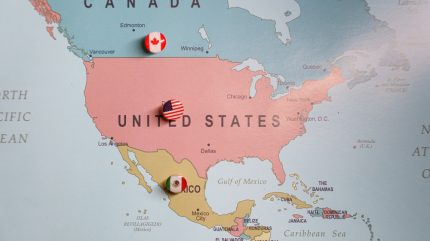
The Plastics Industry Association (PLASTICS) has voiced apprehension regarding the recent implementation of reciprocal tariffs by the U.S. administration.
Matt Seaholm, President and CEO of PLASTICS, emphasised that while the industry supports initiatives aimed at revitalising American manufacturing, the newly imposed tariffs could have unintended negative consequences.
Impact on the plastics sector
Seaholm highlighted that the plastics industry is integral to U.S. manufacturing, supplying essential materials and equipment across various sectors, including semiconductors, automobiles, medical devices, and consumer goods.
He noted that in 2023, the US plastics industry achieved a trade surplus of nearly $1 billion, with exports totalling $74.2bn.
The introduction of these tariffs is expected to disrupt supply chains, elevate production costs, and potentially diminish the global competitiveness of U.S. plastics manufacturers.
Broader economic implications
The tariffs have sparked concerns across multiple industries. Economists predict significant repercussions, including job losses, increased consumer prices, and the potential for a recession.

US Tariffs are shifting - will you react or anticipate?
Don’t let policy changes catch you off guard. Stay proactive with real-time data and expert analysis.
By GlobalDataCanada, for instance, is bracing for severe economic consequences due to the U.S. tariffs, which impose 25% on Canadian goods and 10% on energy.
These measures are anticipated to affect sectors such as agriculture, automotive, and manufacturing, leading to higher prices for consumers and potential job losses.
Call for strategic policy considerations
In light of these developments, Seaholm urged the administration to adopt a more targeted approach to trade policies.
He advocated for strategies that consider the complexities of supply chains, promote investment, and sustain growth within US manufacturing.
The goal is to support policies that bolster American manufacturing without inadvertently harming industries that are foundational to the nation’s economic infrastructure.
Navigate the shifting tariff landscape with real-time data and market-leading analysis. Request a free demo for GlobalData’s Strategic Intelligence here.


